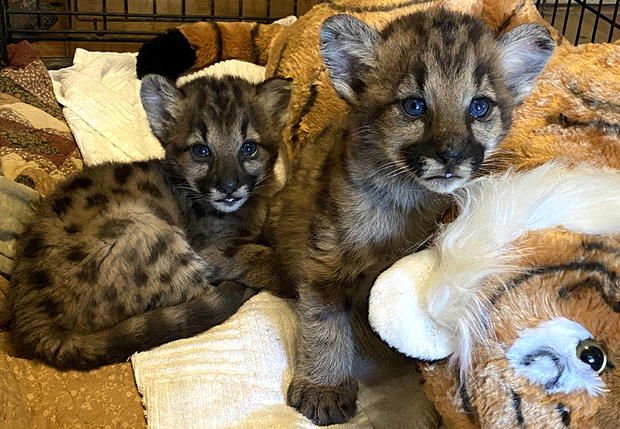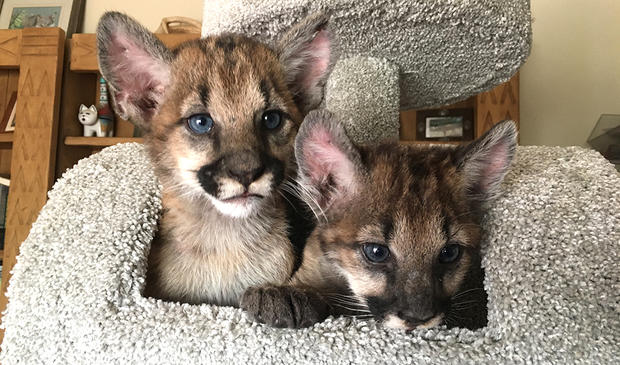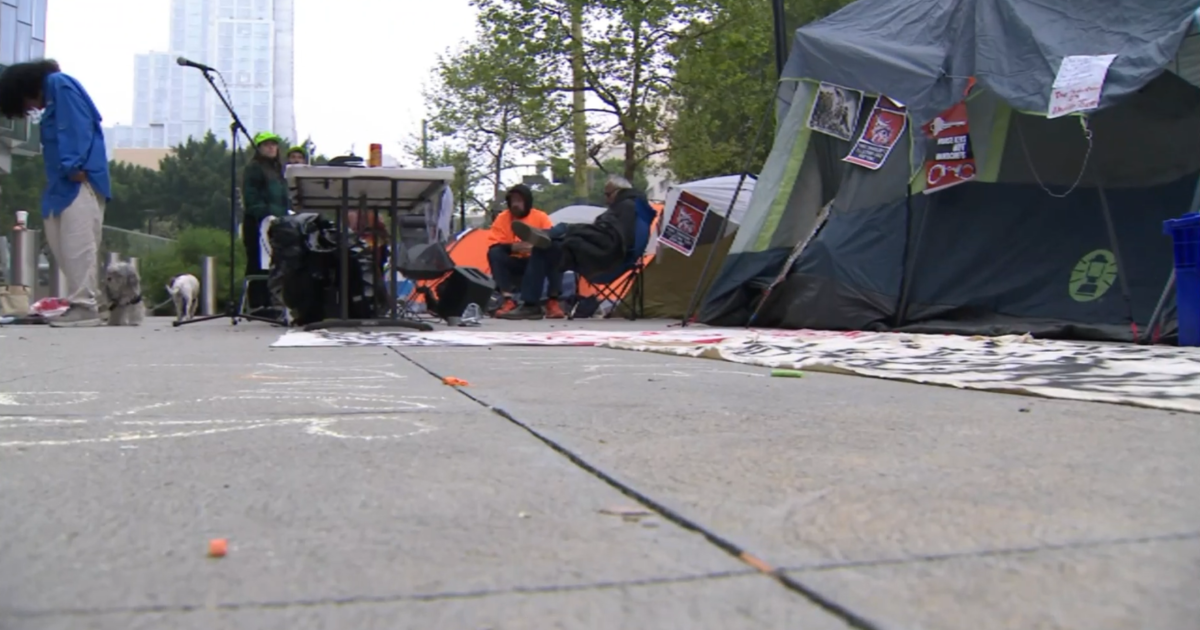2 Mountain Lion Kittens Taken To New Home At Arizona Wildlife Sanctuary After Attempt To Foster Them
THOUSAND OAKS (CBSLA) — Two mountain lion kittens born in the Santa Monica Mountains this summer are now living at a wildlife sanctuary in Arizona following a first-of-its-kind attempt to foster them after their mother died.
P-91 and P-92 were part of a big baby boom this summer in the Santa Monica Mountains, where a total of 13 mountain lion kittens were born. But their mother, P-67, was found dead just a few days after the kittens were discovered on July 7 in the Simi Hills, south of Simi Valley.
At that point, P-91 and P-92 were just three weeks old and could not survive without their mother, according to Jeff Sikich, a wildlife biologist who leads the research on Santa Monica Mountain's population of mountain lions. Mountain lions in California cannot be raised or rehabilitated, then released, so captivity is generally the only other option, according to the National Park Service. But then another mountain lion researcher with California Department of Fish and Wildlife made an unusual suggestion – why not try to foster the kittens with another mountain lion that had also just given birth?
"The story of this fostering attempt is remarkable," National Park Service Superintendent David Szymanski said in a statement.
National Park Service officials say fostering has been successful in other large mammals like black bears and wolves, and in zoo animals. And another mountain lion, P-65, had recently given birth to P-88, P-89 and P-90, who were discovered just the day before.
"These five kittens were all approximately the same age, which meant we had this unique opportunity to attempt fostering and give these kittens a chance to live in the wild," Sikich said in a statement. "I had tried this on black bears on a previous research project and it had worked, but situations can vary for different species and individuals."
National Park Service biologists teamed up with the Fish and Wildlife and the Los Angeles Zoo, which housed the kittens until they could attempt to foster them with P-65. On July 16, while the new mom was away, the mountain lion researchers brought the two orphans to her den and rubbed urine from one of P-65's kittens onto P-91 and P-92 so they would smell like her own offspring. Biologists tracked P-65's movements over the next few days and saw that she moved her den, which they say was not unusual for mother lions. On July 20, the researchers checked P-65's former den and saw the orphaned kittens had been left behind, and P-65's kittens were nowhere to be found.
"Our shared goal for this project all along was to keep the kittens in the wild and, although the new mother did not accept them, we gained considerable knowledge from this experience," Christine Thompson, a Fish and Wildlife biologist said in a statement.
After the unsuccessful fostering attempt, the kittens went back to the LA Zoo temporarily, and were then moved to the Southwest Wildlife Conservation Center in Scottsdale, Ariz., where they will spend the rest of their lives. They are now about three months old and are showing typical wild cat behaviors – stalking, wrestling, and climbing. P-91, the female, is bolder, while P-92, the male, is laid back, according to the wildlife sanctuary.
"They are inseparable and a great comfort to each other," Linda Searles, the sanctuary's director, said in a statement. They are next door to 15-year-old "Tocho," the sanctuary's most prominent mountain lion, and will eventually share his large enclosure if they get along.
As for the orphaned kittens' mother, P-67 was determined to have died with no food in her stomach, and had evidence of an intestinal disease known as necrotizing enteritis. The necropsy also found she had been exposed to five different types of rat poison. Her presumptive cause of death was septicemia, possibly secondary to enteritis, National Park Service officials said. P-67 had been tagged as a kitten herself in 2018, also in the Simi Hills.
"A contributing factor may have been that she was young and stressed by having kittens," Sikich said in a statement. "She was a good mother and she didn't abandon them. She kept on coming back to the den and nursing them even in her likely poor state of health."





